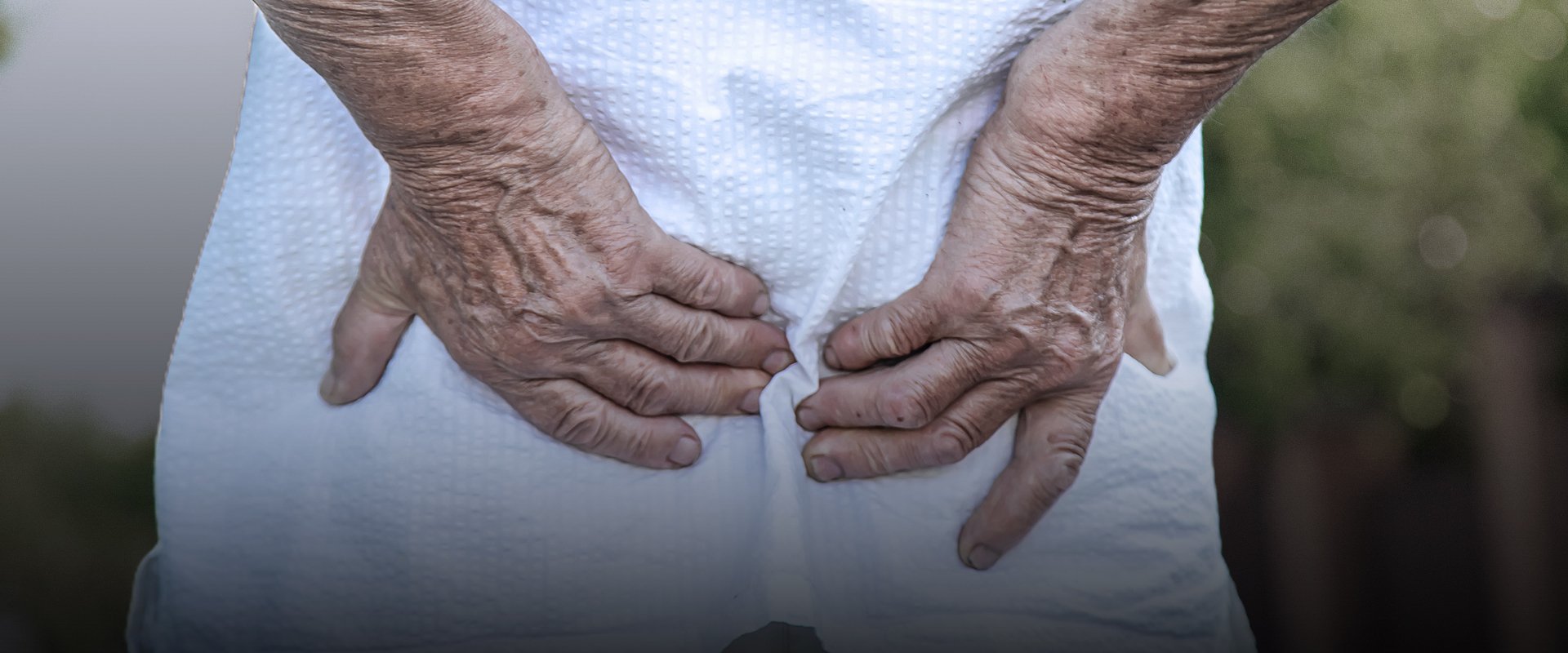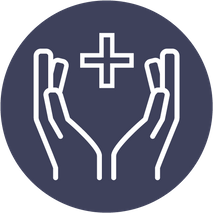
Physical Therapy for back Arthritis
AT EVOLVE
Physical Therapy for a back Arthritis
HOW CAN PHYSICAL THERAPY HELP MANAGE SYMPTOMS OF ARTHRITIS IN YOUR BACK?
The term arthritis is an umbrella term for conditions involving inflammation and pain in joints. There are many types of arthritis including osteoarthritis, Psoriatic Arthritis, Rheumatoid Arthritis, gout and septic arthritis. Arthritis can affect any joint in the body. Different types of arthritis tend to show up in certain joints more than others. Arthritis in the back affects the joints of the spine and due to the nature of the condition, can significantly impact daily function.
While physical therapy cannot reverse arthritis, evidence has shown physical therapy to be effective in managing many symptoms of this condition. Physical therapy can lessen stiffness and improve spinal range of motion, reduce swelling and pain and improve overall function in those living with back arthritis.
WHAT DOES PHYSICAL THERAPY FOR BACK ARTHRITIS LOOK LIKE?
My team of therapists and I will start by getting to know your concerns and goals. Next, we will perform a thorough physical exam to determine how your joints are being affected by arthritis and identify other factors that may be contributing to your symptoms. With that information, we will create a plan of care to help meet your goals. Your therapist may employ manual therapy interventions to target joint and tissue mobility and pain while also prescribing movements and exercises for strength, motor control and mobility to be performed in the home and the clinic.
WHEN WILL I BEGIN TO SEE RESULTS?
The duration of your physical therapy plan of care is based on many different factors including the severity of your symptoms and the number and type of underlying factors your therapist is looking to address. While maximal resolution of symptoms can take time, you may begin to experience some results quickly. You may experience improvements in symptoms such as pain, stiffness, and inflammation within a few weeks but making meaningful changes in strength, flexibility and overall mobility in order to provide long-term relief may take longer. Achieving long-lasting results may take some time, but dedication to your program will help you achieve these results and decrease the likelihood of symptoms recurring.
HOW DOES ARTHRITIS IMPACT THE SPINE?
The term arthritis is an umbrella term for conditions affecting the joints. Osteoarthritis, Rheumatoid Arthritis and Psoriatic Arthritis, for example are types of arthritis. Osteoarthritis is the most common type of arthritis affecting around 24% of adults. It is characterized by a thinning or wearing down of the protective cartilage that lines the ends of the bones in a joint and is typically caused by “wear and tear.” It also affects the bones and the synovial lining of the joint. Other types of arthritis can be caused by infection, auto-immune conditions or urate crystals but they all can cause damage to joint cartilage. Cartilage has two main jobs:
- Provide a smooth, low-friction surface for the joints to articulate and move
- Transmit forces into the underlying bone
- Back pain during or after movement
- Back stiffness that worsens after a period of inactivity
- Swelling or tenderness around a joint
- Decreased flexibility or range of motion in the spine
- A grating sensation or popping/cracking noise when the back moves (though this can happen in healthy joints as well)
Arthritis can be diagnosed via X-ray, MRI or lab test to visualize the joint surfaces and joint spaces and look for diagnostic markers of arthritis. Sometimes the finding of osteoarthritis on imaging is incidental and a person has no symptoms despite evidence of the condition. Other times it can significantly impact daily life. Call to Schedule a Consultation! 1-718-258-3300
End Injury Progression
Physical Therapy for back arthritis has proven to prevent injury, slow and even stop pain issues, improve performance, and reverse injury progression in many cases.
Relieve Pain
The movements used in this technique can target your entire body helping you to manage discomfort and pain during the course of your physical therapy treatments.
Improve Range of Motion
Posture awareness is an important area to focus on due to the fact that certain positions may cause you further discomfort and pain.
Restore Mobility
You can regain mobility and flexibility by taking part in the stretches and exercises as prescribed by your physical therapist.
How Long Will Physical Therapy for back Arthritis Last?
If you decide to work with a physical therapist to help correct your back arthritis issues, your entire treatment plan could consist of around 8-20+ different physical therapy sessions that will each last 60-90 minutes. Once you complete your customized physical therapy treatment plan, you will be able to continue to do the prescribed stretches and exercises utilized during your back PT sessions yet in the comfort of your own home.
PHYSICAL THERAPY FOR BACK ARTHRITIS
Depending on the cause of your back arthritis, you may need to work with a doctor to address the underlying medical condition with medications and lifestyle modifications. For example, those with gout may take medication and adopt a certain diet to prevent gout attacks and those with rheumatoid arthritis may take disease-modifying medications. Physical therapy cannot reverse the effects of arthritis on joint tissues, however, research shows that physical therapy is an effective tool to reduce pain and improve function in the spine.
When physical activity causes pain, it is common for persons with arthritis to begin self-limiting activity. Though it may seem counterintuitive, restricting motion altogether is not the answer to arthritis pain. Instead, working with a physical therapist to help improve painful symptoms and restore joint function will encourage you to move more.
Your physical therapist will always individualize a treatment plan to address your specific type and symptoms of arthritis, however, here are common goals and treatment techniques of physical therapy for back arthritis:
Pain Reduction: Modalities such as heat, ice or electrical stimulation and gentle hands-on techniques such as passive range of motion, soft tissue or joint mobilization, myofascial release techniques, or taping to improve the mobility and function of the joint and soft tissues can be used to reduce pain.
Restore Joint Motion: If mobility is restricted in the connective tissue structures around the joint itself, spinal joint mobilization techniques may be utilized to improve that motion. Active range of motion might be prescribed initially to reintroduce motion to the joint and later on stretching may be prescribed to help lengthen chronically shortened tissues.
Address Biomechanical Impairments: While the surfaces of the joint may no longer be pristine, how the joint moves and how much stress is applied across an affected joint can play a large role in how much pain you experience and how much you have to limit your activities. Proper strength and flexibility in the muscles surrounding the joint can optimize its movement and may reduce some of the rubbing that occurs between uneven joint surfaces.
Return to Activities: The ultimate goal of a physical therapy program for arthritis of the back is to help you get back to the activities you love and need to do throughout your life. At Evolve, your PT will help you get back to activities in the safest, most effective and quickest way possible. They will always strive to help get you back to these activities but in cases where that is not possible without some modification, your PT is there to help advise you on adaptations you can make to help control your symptoms.
If your back is impacted by arthritis symptoms, physical therapy can help. Our team of therapists at Evolve PT is here to help you manage these symptoms and start the journey to restoring as much function in your spine as possible. Call today to learn more and to schedule an initial evaluation with one of our therapists.
Mill Basin (located in Harbor Fitness)
6161 Strickland Ave
Brooklyn, NY 11234
Monday: 7am-8pm
Tuesday: 7am-8pm
Wednesday: 8am-5pm
Thursday: 7am-8pm
Friday: 8am-1pm
Park Slope (located in Harbor Fitness)
550 5th Ave.
Brooklyn, NY 11215
Monday: 9am-8pm
Tuesday: 8am-6pm
Wednesday: 9am-8pm
Thursday: 8am-6pm
Friday: 8am-3pm
Gravesend
372 Avenue U
Brooklyn, NY 11223
Monday-Thursday: 8am-8pm
Friday: 8am-3pm
Kings Highway
945 Kings Highway
Brooklyn, NY 11223
Monday-Wed.: 12pm-8pm
Ready to take the next step to a healthier you?
Contact Us Today!
PHYSICAL THERAPY FOR BACK ARTHRITIS
Need physical therapy for a back arthritis?
Let our caring and compassionate physical therapists help you with relieving pain while getting you back on your feet comfortably.
Call now to schedule your first PT consultation free of charge.
Call: 1-718-524-3261






